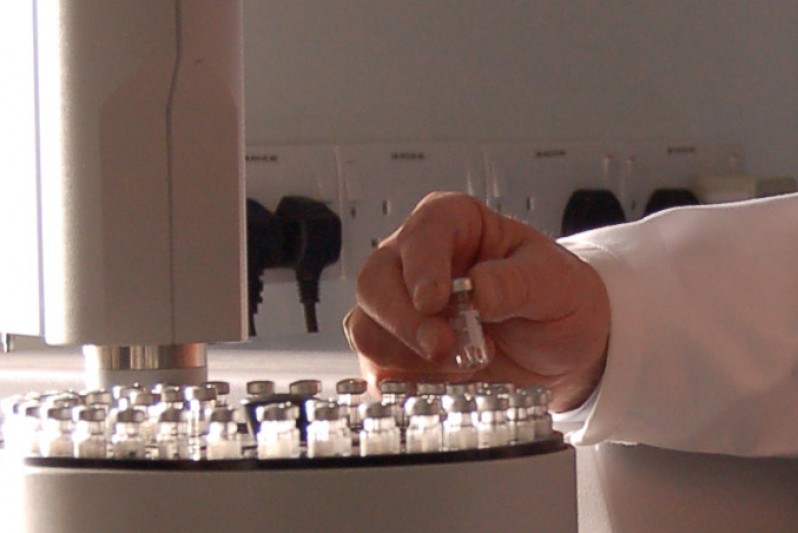Project details
Habitat connectivity is critical to enable populations of threatened species to access a range of functional habitats, including for reproduction, foraging and over-wintering. However, the anthropogenic alteration of natural systems (e.g. macro-scale river engineering in rivers, including dam and weir construction) has resulted in widespread habitat fragmentation. The net result is populations of species that are already threatened by issues such as climate change and exploitation are driven closer to extirpation through their inability to access their former functional habitats.
Although solutions to connectivity loss exist, including the removal of the structures that prevent fish movements (e.g. dam removal programmes), this is often not feasible as the structure still has an ongoing use. Instead, reconnection of these fragmented habitats is usually through engineered solutions that facilitate fish movements between fragmented habitats, such as fish passes (or fish ladders). Fish passes facilitate individuals to move across otherwise impassable structures by providing an alternative and easier route around the barrier but do not restore the natural habitat. While these fish passes can be effective, their construction can be expensive and their performance is often not assessed comprehensively and across all appropriate fish species - despite their importance for promoting biodiversity sustainability while maintaining the delivery of societal benefits from the primary structure.
The aim of this PhD is to quantify the efficacy of engineered fish passage solutions that are designed to resolve habitat fragmentation. This will be completed by measuring their use by resident and diadromous fish species using a multi-method approach (including biotelemetry and video technology). This will include assessments of passage within and between species, including evaluating the role of individual behaviours on successful passage. These integrated assessments will enable the population, community and ecosystem responses to engineered reconnection to be more accurately quantified.
View full project description (pdf 271kb)
The closing date for applications is 17 April 2023.
Supervisors
Demetra's research can be subdivided into three main streams which all combine to inform the conservation management of species.
1. Conservation of migratory species
Demetra uses a combination of genomic tools, environmental DNA detection and telemetry to inform the conservation management of migratory species such as the sea lamprey and allis and twaite shad. The work is funded by the European Commission (Marie Curie fellowship to Dr Miguel Soares) and the Severn Rivers Trust (through two PhD studentships – Caterina Antognazza and Peter Davies).
Collaborators: Prof. Robert Britton, Dr Pippa Gillingham
2. Emerging disease and host-parasite co-evolution
Demetra is researching the factors that can lead to disease emergence using the parasite Sphaerothecum destruens as a model species. Her work has demonstrated how this generalist parasite can establish and spread to new hosts within a year of its introduction.
Lab alumni that have worked on this topic: Dr Salma Sana;Dr Farah Al-Shorbaji
Collaborators: Dr Chris Williams (Environment Agency); Dr Richard Paley (Centre for Environment, Fisheries and Aquaculture Science); Dr Rodolphe E. Gozlan (INRA, France).
Demetra investigated the dynamics of host-parasite co-evolution and the impact of parasites in trophic webs using a number of parasites as model species (most notably Pomphorhynchus tereticollis).
Lab alumni that have worked on this topic: Dr Josie Pegg; Dr Danny Sheath
Collaborators: Prof Robert Britton, Dr Chris Williams (Environment Agency)
3. Microplastics in freshwaters
Demetra is investigating microplastic levels in freshwaters in abiotic samples (water and sediment) and in biotic samples (invertebrates and fish) – with a special interest on how they cycle through the food web (in the presence/absence of trophically transmitted parasites).
The work is funded by the Fisheries Society of the British Isles through a PhD studentship to Ben Parker.
Funding
A fully-funded Studentship includes a maintenance grant of £17,668 per year to contribute towards living expenses during the course of your research, as well as a fee waiver for 36 months.
Associated costs, such as for fieldwork and conference attendance, will also be met under the Studentship.
Academic support
The Research Development Programme, developed by the Doctoral College in line with the Researcher Development Framework (Vitae).
An added benefit is the opportunity to meet researchers from other academic schools at BU through the activities of the Doctoral College and benefit from their experiences, skills, and perspectives.
Full entry requirements
The BU PhD and MRes Studentships are open to UK, EU and International students.
Candidates for a PhD Studentship should demonstrate outstanding qualities and be motivated to complete a PhD in 4 years and must demonstrate:
- Outstanding academic potential as measured normally by either a 1st class honours degree (or equivalent Grade Point Average (GPA) or a Master’s degree with distinction or equivalent
- An IELTS (Academic) score of 6.5 minimum (with a minimum 6.0 in each component, or equivalent) for candidates for whom English is not their first language and this must be evidenced at point of application.
In addition to satisfying minimum entry criteria, BU will look closely at the qualities, skills and background of each candidate and what they can bring to their chosen research project in order to ensure successful completion.
Applicants will be asked to submit an online application form and a proposal (approximately 1500 words) outlining their understanding of the project for which they are applying, the approach they would envisage taking and what qualities they will bring to the research community.
Please note:
- current BU Doctoral students are not eligible to apply for a Studentship
- current MRes/MPhil students can apply, subject to satisfactory completion of their Research Degree prior to being able to take up the award
- PhD Studentships cannot be used to support BU staff to complete doctoral programmes.
Additional entry requirements:
Candidates are expected to have some relevant field based experience and knowledge of the application of fish telemetry methods.
International entry requirements
If English is not your first language, you will need to provide evidence that you can understand English to a satisfactory level. English language requirements for this course are normally:
IELTS (Academic) score of 6.5 (with a minimum 6.0 in each component) or equivalent.
View further information about our English language requirements.
A number of pre-sessional English and preparatory programmes are offered through our partner institution, Bournemouth University International College, and will get you ready for study at BU at the appropriate level.
You can also find further details of the international qualifications we accept, and what level of study they apply to, on our postgraduate entry requirements page.
How to apply
Click the green ‘Apply now’ button at the top of the page and complete the online application form. You can find further guidance about applying for a postgraduate research degree in our Postgraduate Research section.
The closing date for applications 17 April 2023.
Careers
A research degree can open new career opportunities in commercial research and development, consultancy, or could lead you to starting your own business. You may alternatively consider a career in academia. You may wish to undertake research to contribute to your knowledge of a specialist subject, or develop your employability by enhancing your skills in project management and analysis.


